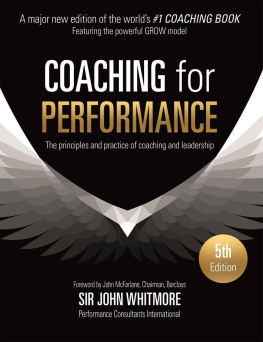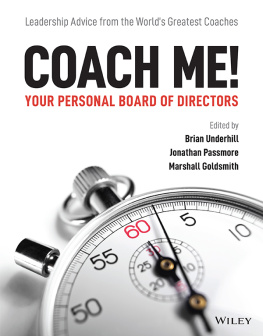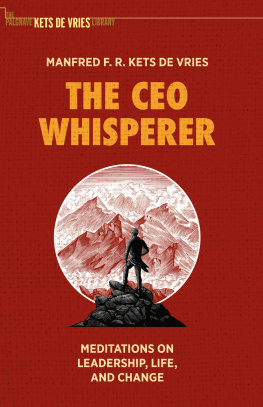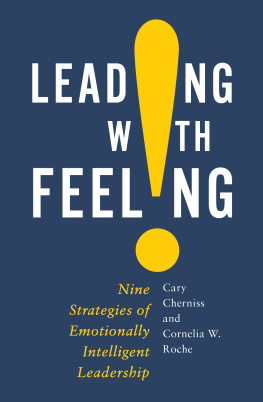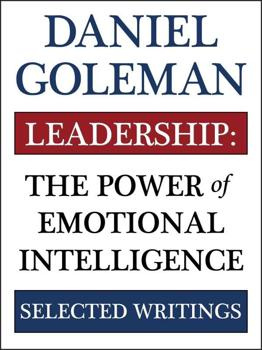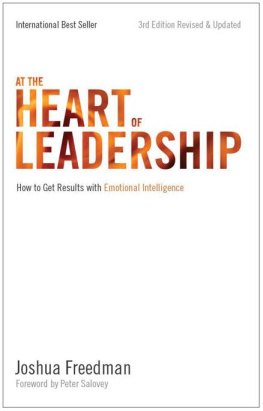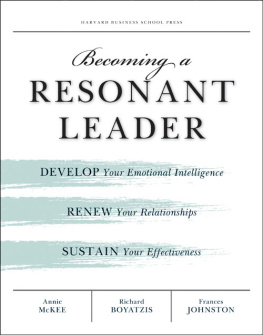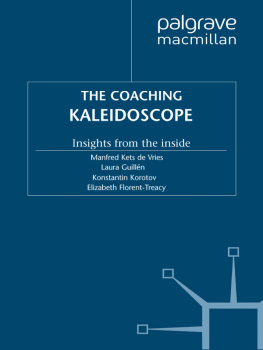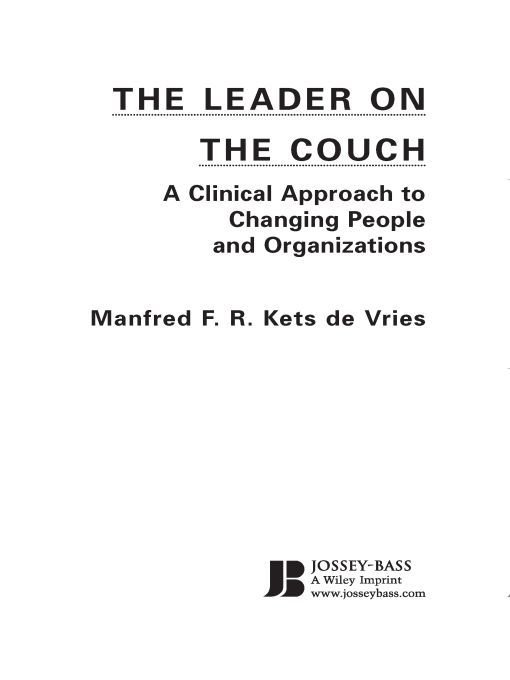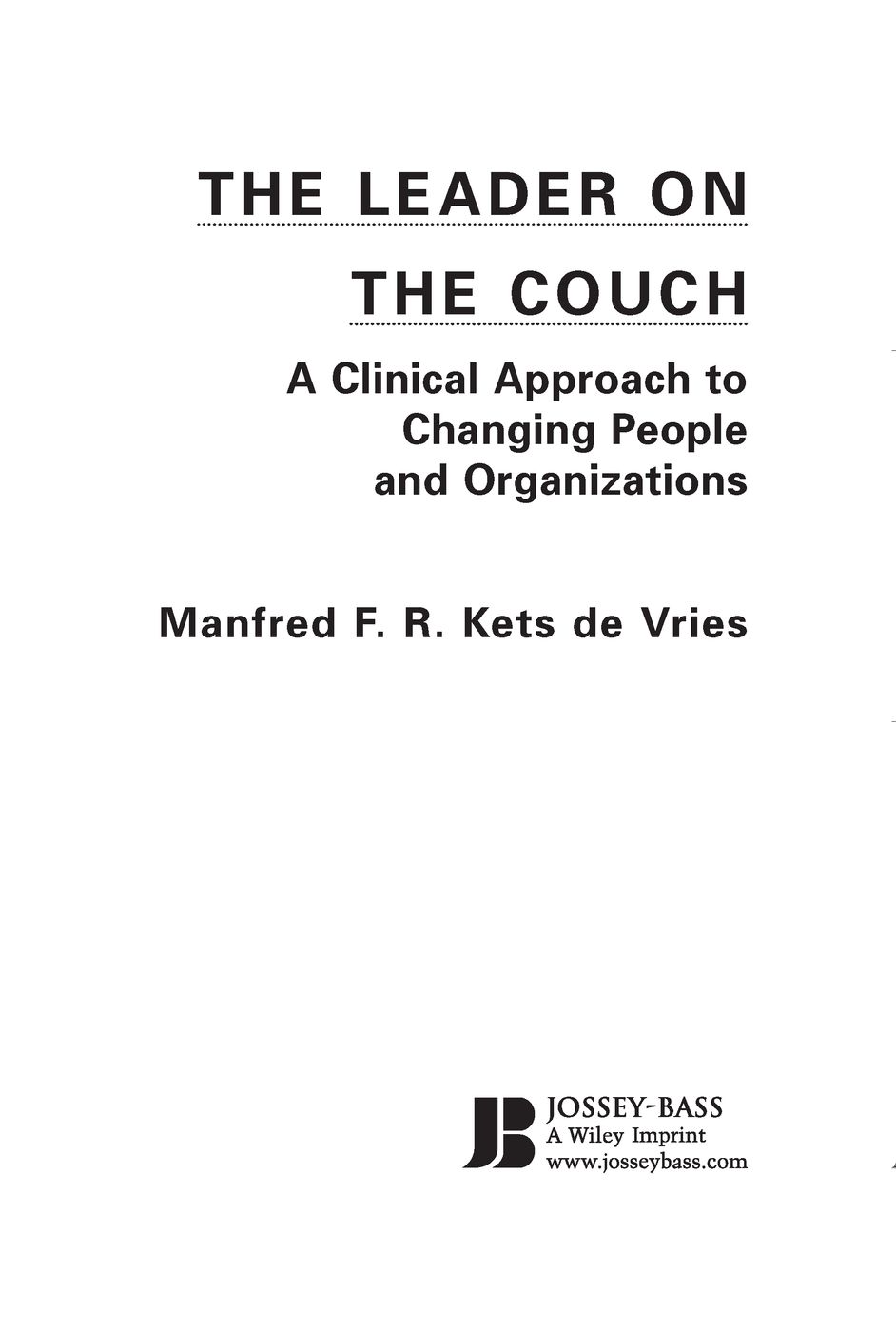Table of Contents
To Alicia,
A great bearer of transitional space
PREFACE
There are... things which a man is afraid to tell even to himself, and every decent man has a number of such things stored away in his mind.
Fyodor Dostoyevsky, Notes from the Underground
Becoming conscious is of course a sacrilege against nature; it is as though you had robbed the unconscious of something.
Carl G. Jung
Know thyself? If I knew myself, Id run away.
Johann Wolfgang von Goethe
Man stands in his own shadow and wonders why its dark.
Zen proverb
Theres a Zen story about a martial arts student who went to his teacher and said, I have committed myself to master your martial system. How long will it take me to succeed? The teachers response was, Ten years. Impatiently, the student countered, But thats far too slow. I want to succeed much sooner. Ill work very hard. Ill dedicate myself to practicing however many hours it takes each day. How long will mastery take when I make that kind of effort? The teacher thought for a moment, and then replied, Twenty years.
Obviously, the teacher is trying to tell the student that he needs to learn patience before proceeding any further. Hes saying, Go slowly to go fast! Certain kinds of learning cant be rushed; they have to be approached one step at a time. This is particularly true of becoming more emotionally attuned. To acquire this kind of knowledge, there are two secrets. The first is to have patience; the second is to be patient! Acquiring higher emotional intelligencethat is, gaining a better understanding of the psychodynamics of human behavioris never instantaneous. Becoming more psychologically minded requires not only time, but also persistence. Patience and persistence can move mountains. They are the keys to becoming more emotionally astute.
What differentiates the great companies of this world from the merely average ones is the level of emotional intelligence (EQ) among their employees. In our post-industrial knowledge-based society, companies populated with high-EQ personnel have the best shot at creativity and innovation. In such companies, statements like People are our greatest asset and Our capital leaves the workplace every evening are more than empty slogans; they are credos with real meaning. Executives who run such companies value their people and see them as much more than interchangeable commodities. Realizing that considerable corporate knowledge and wisdom reside in the gray matter of their employees, they view the selection, development, and retention of talent as a source of competitive advantage, they consider leadership development a core competence, and they make a valiant effort to keep their employees motivated.
I have devoted my working life to helping people create emotionally intelligent organizations. I have taken many different routes to make this dream a reality. As a management professor, consultant, leadership coach, psychotherapist, and psychoanalyst, I have had many corporate leaders on the couch, literally and figuratively. My in-depth interactions with these executives have given me a rare glimpse into the inner world of leaders, revealing the interplay of personality and environment and unveiling the process of personal and organizational change.
In taking this road less traveled, I have noted a clear and compelling connection between the personal objectives of the organizations power holders and the objectives of the organization itself. The intrapsychic themes of the CEO often dictate the structure or priorities of the organization. This linkage comes about because we are what we think. In other words, all that we are arises with our thoughts; with our thoughts, we make our world. Perception carries so much weight that objectivity is nothing more than masked subjectivity. Thus many management theories that explain how people make decisions in organizations are inadequate oversimplifications. In fact, the apparently rational explanations for certain decisions often turn out to be fiction, rationalizations made after the fact to explain how intrapsychic themes were translated into external reality.
In my role as a management consultant to executive boards, I have often been quite successful at creating high-performance teams and high-performance organizations. When I began to work with executive boards, however, I discovered that many executive teams are what I call unnatural acts. Though they come together to make serious decisions affecting the future of the organization and its people, they engage in ritualistic activities that center on political gamesmanship and posturing rather than substance. The barons of the various business entitiesthe heads of marketing and new-product development, for exampleare so busy defending their respective fiefdoms that true conflict resolution doesnt occur. Other, more intangible factors seem to take over as executives circle around undiscussables. While a six hundred pound gorilla sits on the table, smelling up the place, the senior executive group squanders an incredible amount of energy ignoring its presence. Far too often, it has to be high noon (or beyond) before corporate leaders are prepared to deal with the real issues. In many instances, as an outside consultant, I have taken it upon myself to nudge an executive team to grapple with their own particular undiscussables. In taking on that role, I have come to understand the meaning of the saying, Fish start to smell from the head.
As in my consultant work, in my role as an educator I have gone to great lengths to create more emotionally intelligent students. I have made this effort not only in working with MBAs but also in working with executives. The two transformational programs that I run at INSEAD, The Challenge of Leadership: Creating Reflective Leaders and Consulting and Coaching for Change, have been instrumental in accomplishing these goals. In particular, the top management program The Challenge of Leadership has been a great human laboratory, encouraging and promoting mindset change among participants.
I have a dream as an educator dedicated to helping people engage in transformational journeys. This dream goes as follows: If I can increase the EQ level of the approximately twenty people who usually are enrolled in this program at any one time, perhaps I can have a positive effect on the 100,000 or more people for whom they are responsible. I would like to think that I can help make their organizations more effective and more humane. Too many organizations possess gulag qualities that prevent the human spirit from self-actualizing.
This book is a manifesto espousing my belief, and that of my colleagues at the INSEAD Global Leadership Center, in high-EQ organizations. It is a natural sequence to a previous book of mine: The Leadership Mystique. The difference is that this new book, in introducing the clinical approach to individual and organizational intervention, is more conceptual. It takes a much deeper look at personality prototypes; it introduces a well-tried methodology to help executives change behavior patterns; it deals with leadership coaching; it concerns team building; and it explores system-wide change strategies in organizations.
Like The Leadership Mystique, Leaders on the Couch is a manifesto in favor of organizations where people are authentic and feel truly alive, where they understand what theyre doing and why, and what the consequences will be. Its a manifesto arguing for more reflective, emotionally intelligent executives, and it offers valuable tools toward that end: for example, it gives executives a new lens through which to look at people and conceptsa lens that makes unusual behavior (in self and others) more understandable. Far too many executives engage in manic behavior, running and doing all the time, forgetting why they go to work each day. Uncertain what they want, theyre nonetheless willing to kill themselves to get it. While it may be true that the really idle person doesnt get anywhere, the perpetually busy person has the same problem. My hope is that this book will be helpful to executives, consultants, and leadership coaches, teaching them to peel back the layers of self-deception to reveal how inner personalitylargely hard-wired since early childhoodaffects the way we lead and manage others.


